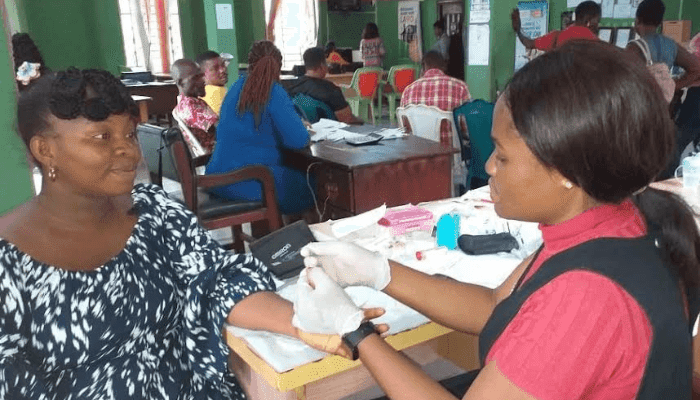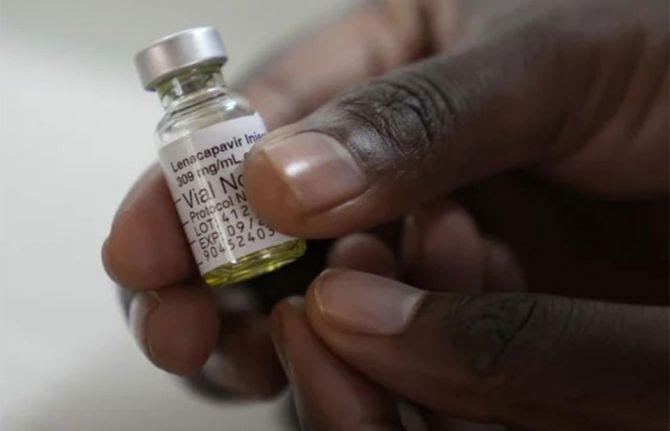*Why Nigeria Must Lead Its Health Revival
As foreign aid dwindles and health challenges deepen, Nigeria faces a defining moment: either chart a self-reliant path or continues its perilous dependence on external support. This special report, written by Korede Abdullah, Africa Health Report Southwest correspondent, explores the country’s breach of the Abuja Declaration, the human cost of chronic underfunding, and the urgent call for a homegrown revolution in healthcare — one that could ripple across Africa if Nigeria finally leads by example.
A Fragile Lifeline at Risk
In the face of waning global generosity and rising local health crises, Nigeria stands at a crossroads — one path leads deeper into dependency, the other toward a bold, self-driven revival. As donor fatigue sets in globally and political winds shift in the West, the long-standing lifeline of foreign aid for Nigeria’s healthcare system is fraying.

The question, then, is not if Nigeria should lead its health revival, but whether it can afford not to. With diseases like HIV/AIDS, malaria, tuberculosis, and maternal mortality still ravaging the population, experts warn that clinging to handouts is no longer a viable option.
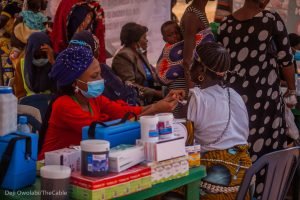
History of Donor Dependency
For years, Nigeria’s healthcare system has been propped up by billions in donor funding. The U.S. alone contributed a significant portion of the $1.26 billion Nigeria received from the World Health Organization (WHO) between 2016 and 2024.
This funding supported programs for HIV/AIDS, polio eradication, malaria control, and maternal health. However, with the partial withdrawal of U.S. support under President Donald Trump and a drastic cut in WHO’s 2026/2027 budget, the alarm bells are deafening.
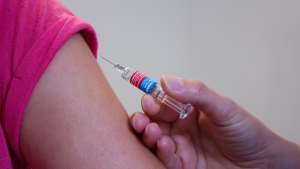
“We have always warned about the sustainability risks of donor dependency,” said Dr. Rose Akinyele, a public health analyst. “Now the time has come for Nigeria to either innovate or collapse under its own negligence.”
The Abuja Declaration: Betrayed by Its Host
The Abuja Declaration of 2001 was a historic pledge, signed on Nigerian soil, in which African Union leaders committed to allocating at least 15% of national budgets to healthcare. Ironically, Nigeria was the first to breach this pact. For over two decades, it has allocated a mere 4–6% to health — a far cry from its own commitment.

“Poor budgeting is not just a gap; it is the core problem of our health system,” said Chief Medical Director (CMD), University of Ibadan Teaching Hospital, (UCH), Prof. Jesse Otegbayo.
Speaking on the difficulties faced by the hospital, Prof. Otegbayo, lamented high overhead cost of running hospitals in Nigeria. He used the UCH as a case study of under-funding for health sector. The The CMD said the running cost is far ahead of the amount the facility receives from the Federal Government monthly.
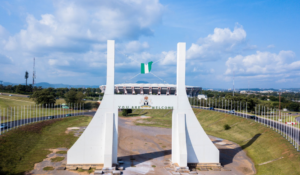
He pointed out that the same situation is obtained in virtually all teaching hospitals in the country.
“When you neglect funding, you paralyze every structure meant to keep citizens alive”, the don added.
The Abuja Declaration remains a haunting irony. Nigeria, the host and architect of the commitment, has repeatedly allocated less than 7%. This failure sends a dangerous signal to the rest of the continent. As Nigeria reneged, other African countries followed suit, arguing that if the host country failed to honour the deal, why should others bother?
Human Cost of Chronic Underfunding
This chronic underfunding has birthed a cascade of consequences. Nigeria’s insurance penetration is dismally low, forcing millions to rely on out-of-pocket payments. As a result, families often face financial ruin over routine medical procedures.
Meanwhile, neglected primary health centres across rural areas have become graveyards of preventable deaths. A Kaduna-based physician, Dr. Halima Lawal lamented: “Women die in childbirth, children die of malaria, and it’s not because we lack knowledge — it’s because we lack the political will to fund our systems.”
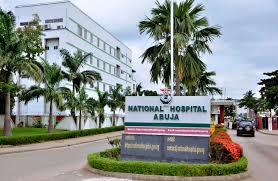
Parallel Systems and the Corruption Crisis
According to experts, foreign-funded programs, while lifesaving, often bypass system-wide strengthening. They contend that, instead of building resilient public health infrastructure, they create parallel channels that vanish once grants dry up. Worse still, these programs occasionally fall prey to mismanagement.

In 2016, the Global Fund revealed that $3.8 million allocated to Nigeria’s AIDS agency was siphoned by officials and consultants. “Corruption has turned aid into a revolving door of waste,” noted Chido Nwoke, a transparency advocate.
Lessons from the COVID-19 Wake-Up Call
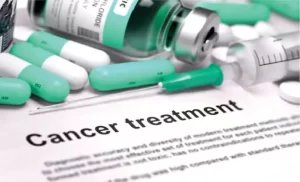
The COVID-19 pandemic was a wake-up call Nigeria tragically ignored. Western nations hoarded vaccines, leaving African countries stranded. Yet, Nigeria has failed to invest in local drug and vaccine production. “That was a lesson in realpolitik — nobody will save you when disaster strikes,” said a virologist at Nnamdi Azikiwe University, Awka, Professor Ifeoma Okonkwo. “Still, here we are, refusing to fund our research institutions, refusing to invest in biopharma”, she added.

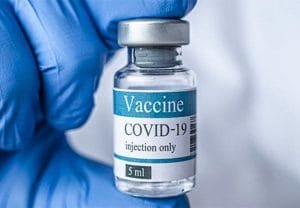
Tinubu’s Pledge: From Rhetoric to Reality
President Bola Tinubu’s statements, have often acknowledged the urgency of reform. “No nation can develop without a healthy people,” he said while unveiling his Renewed Hope Agenda. He has pledged to raise healthcare spending and eliminate medical tourism among government officials.

“We must stop exporting our health challenges and importing solutions. It’s time to fix the system at home,” he asserted. Experts say the President’s remarks are timely — but only action will tell if this marks a true turning point.
Health Minister Pate’s Reforms and Federal Policy Goals
Minister of Health and Social Welfare, Professor Muhammad Ali Pate, recently rolled out a three-point plan focused on expanding health insurance coverage, revitalising primary healthcare, and localizing pharmaceutical production.
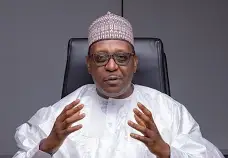
“We are working toward a resilient health system that protects every Nigerian,” he said during a media briefing in Abuja. Under the government’s new health sector roadmap, there are plans to enroll 50 million Nigerians under the National Health Insurance Authority (NHIA) by 2027 and to support domestic vaccine manufacturing through partnerships with the private sector.
Learning from Cuba, Rwanda and Ghana
With the WHO slashing its budget and rising ideological tensions from Western donors, health stakeholders say Nigeria must emulate countries that took charge of their own destinies. Cuba, despite decades of economic sanctions, built a strong community-based healthcare model.
Rwanda has invested heavily in health data systems and universal insurance. Ghana, though not perfect, has advanced its National Health Insurance Scheme with better consistency than Nigeria.
“We don’t lack resources, we lack priorities,” said a top personnel of the Lagos State Health Service Commission, Dr. Olumuyiwa Adetokunbo. “Nigeria must stop looking abroad for miracles. In Lagos State, we are doing all doing we can to fill in the gaps”, he cautioned.
From Abuja to the Future: Africa is Watching
Ultimately, the road to a healthier Nigeria lies not in Washington or Geneva, but in Abuja and in every state capital. The country must reorient its national priorities — from political expediency to human development.
“Healthcare is a mirror of governance,” noted Professor Otegbayo. “You cannot claim to care for your people when they die from curable diseases”, the university don concluded.
According to a World Health Organization (WHO) consultant, Dr. Charles Adeyemo, who spoke with Africa Health Report (AHR) on Thursday, the federal health policy, which focuses on Universal Health Coverage, digital health records, local pharmaceutical manufacturing, and domestic financing, offers a roadmap — but only if it is funded and implemented with sincerity, not slogans.
“With Nigeria’s revival comes a potential domino effect for the continent. If the country that hosted the Abuja Declaration can finally lead by example, other African nations may be inspired to follow. Africa does not need pity or prescriptions written abroad”, Dr. Adeyemo said.
He added that it needs political courage, local innovation, and a new social contract that treats healthcare not as a privilege but as a right. Because in the end, if the heart of Africa fails to beat for its people, the whole continent risks flatlining.

